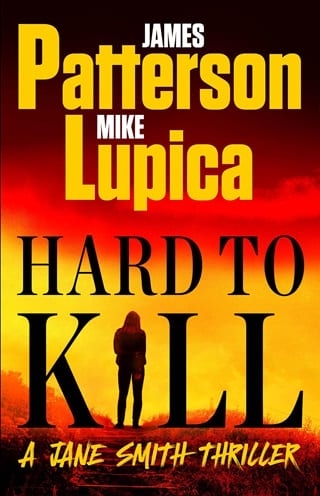Twenty-Seven
TWENTY-SEVEN
DR. BEN KALINSKY MAKES the fair point that until this moment I've never talked about either of my ex-husbands, other than to jokingly refer to them as Thing One and Thing Two before I change the subject.
I counter now by reminding him that he never talks about his ex-wife.
He grins. "Who?"
I check on dinner. We've still got some time. Rip has taken his usual spot at our feet.
"Tell me about Martin."
Back at the Meier Clinic, I promised Fiona that I'd do a better job of opening myself up. I do that now, for the man I told Fiona I loved even more than either of the men I'd married.
So I tell him.
About the time I decided that even with my career beginning to take off after a couple of high-profile cases, I needed a new hobby. I considered learning to play the piano. I chose cooking classes instead. A Manhattan culinary studio called Home Cooking on Grand Street. The teacher, as gorgeous as his accent, was Martin Elian.
He was going to be famous someday, he said, when he finally had enough money to open his own restaurant.
"Maybe even as famous as you are going to be," he told me.
I sip my wine, say to Ben, "I could tell you a little more about browning the puff pastry just right."
"I want to hear about the chef."
"Brigid was taking the class, too. I was sure he'd go for her. Martin was a few years younger than both of us, but she's always been the pretty one. Trust me when I tell you this: he was prettiest."
"And swept you off your feet, the romantic French bastard."
"Did he ever."
Martin and I were married six months later. By then he'd opened a bistro in the West Village and both of our professional lives were taking off. I still thought we were happy.
That made one of us.
"No happily-ever-after, obviously," Ben says.
"Unhappily, no."
The marriage lasted three years. Really, it only went bad over the final six months. He eventually drifted into an affair with his sous chef at the new, bigger place he'd opened on the Upper West Side. But he had already moved out by then.
Moved out and moved on.
"I wanted to blame it on our careers, but even I knew that was a cliché. It wasn't careers, plural. It was just one. Mine. He said being a lawyer was all I needed. I told him he was wrong. He said that maybe he knew me better than I knew myself. Before he walked out, I told him I could change if he'd give me a chance; I hated how needy and desperate I sounded, almost like another person. He told me that I was incapable of changing. And left. And nearly broke my goddamn heart in the process."
I sip more wine. "You want to know why I don't cook? Because it reminds me too much of him."
Ben doesn't say anything. He somehow seems to know that isn't the end of the story.
It isn't.
"He told me he still loved me and probably always would love me. But that I was incapable of living with anybody."
"Anybody meaning him, the master chef."
"Anybody meaning anybody," I say.
I reach for my glass and realize it's empty. I reach for his glass and take a sip.
"And none of that is the worst part," I say. "The worst part is what he said to me on the day he moved out."
No going back now.
Tell him all of it.
Now or never.
"He told me that losing the baby was probably the best thing for both of us."
 Fullepub
Fullepub 



